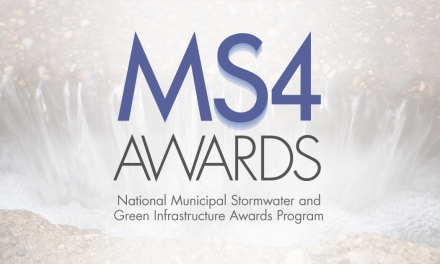The U.S. Bureau of Reclamation (USBR) is offering a total of USD $300,000 in prizes for new and improved methods of measuring precipitation. The Counting Every Drop Challenge, which opened for submissions Aug. 4, tasks entrants with building novel rain gauges tailored for use in remote areas. The winning gauge will be both more accurate and reliable than existing devices, with an emphasis on minimizing power and maintenance needs as well as eliminating the need for oils and antifreeze often used to accommodate solid precipitation.
Existing methods to measure precipitation are generally reliable, according to USBR — however, particularly in remote environments where manual maintenance is a challenge, each conventional method has its weaknesses. For example, traditional rain gauges based on graduated cylinders often require someone on hand to empty them after each rain event and struggle to capture solid precipitation, while weight-based instruments often rely on antifreeze, which must be manually hauled away after use, to melt solid precipitation. Ground-based weather radars can circumvent many of these issues and can measure precipitation even over long distances, but they require a line of sight that may be hard to maintain in mountainous regions. Each of these weaknesses affect the critical data water managers require to plan for irrigation needs, control flooding, predict water supplies, and more.
“Accurately measuring rain and snow is critical for water managers to understand how much water is available and for predicting floods and droughts,” said USBR Senior Advisor for Research and Development Levi Brekke in a statement. “The goal of this prize competition is to develop new devices that increase accuracy and reliability while reducing maintenance so they can operate cost-effectively in extremely remote areas.”
Enter by Oct. 24
The Counting Every Drop Challenge, run by USBR alongside the U.S. Department of Agriculture Natural Resources Conservation Service (NRCS), U.S. National Aeronautics and Space Administration Tournament Lab, Geonor Inc. (Branchville, New Jersey), and Freelancer (Sydney, Australia), consists of two phases.

In the first phase, entrants will submit technical papers describing their proposed solution by October 24, 2022. These submissions should describe how the planned device will accurately measure both liquid and solid precipitation on only a 12V DC power supply without discharging any substances besides water. Solutions should also output data compatible with common dataloggers and provide measurements at least once per hour. Perhaps most importantly, as the challenge intends to develop solutions specifically for remote areas, proposed devices should only require manual maintenance at a maximum of once per year, contest rules describe. Judges will select the top eight proposals by November 18, 2022, which will each receive USD $10,000.
After a series of preliminary reviews in which competition representatives will meet with each of the eight frontrunners to discuss their idea and their ability to develop it, five finalists will receive USD $15,000 each to transform their proposal into a prototype device. In May 2023, they will ship their prototypes to NRCS, which will carry out field testing alongside a benchmark precipitation measurement device in remote conditions over an eight-month period. The five teams will receive an extra USD $3,000 each for shipping their devices for testing.
The top-performing solution will receive the grand prize of USD $100,000, while the other four solutions will share USD $30,000 based on their device’s performance. USBR will announce the winners in August 2024.
See full rules and submission guidelines for the Counting Every Drop Challenge on Freelancer.com.
Casting a Wider Net
Through its Water Prize Competition Center, USBR has been hosting public competitions to accelerate innovation in all corners of the water sector since 2015. Earlier this year, for example, USBR announced the winners of its Streamflow Forecast Rodeo competition, which tasked participants with predicting short-term streamflow in the western U.S. more accurately than conventional methods.
Other recent competitions orchestrated by the USBR Water Prize Competition Center include
- the Imperfection Detection competition, seeking portable tools to identify defects in polymer-based pipelines and other structures;
- the Water America’s Crops challenge, focusing on controlling seepage in irrigation pipelines;
- the Guardians of the Reservoir challenge, accelerating technologies to collect and transport sediment from reservoirs; and
- the More Water, Less Concentrate challenge, aiming to devise new ways to generate more usable water from inland desalination facilities.
Learn more about USBR’s innovation competitions at its website.
Top image courtesy of Rebecca Matthews/Pixabay

ABOUT THE AUTHOR
Justin Jacques is editor of Stormwater Report and a staff member of the Water Environment Federation (WEF). In addition to writing for WEF’s online publications, he also contributes to Water Environment & Technology magazine. Contact him at jjacques@wef.org.






